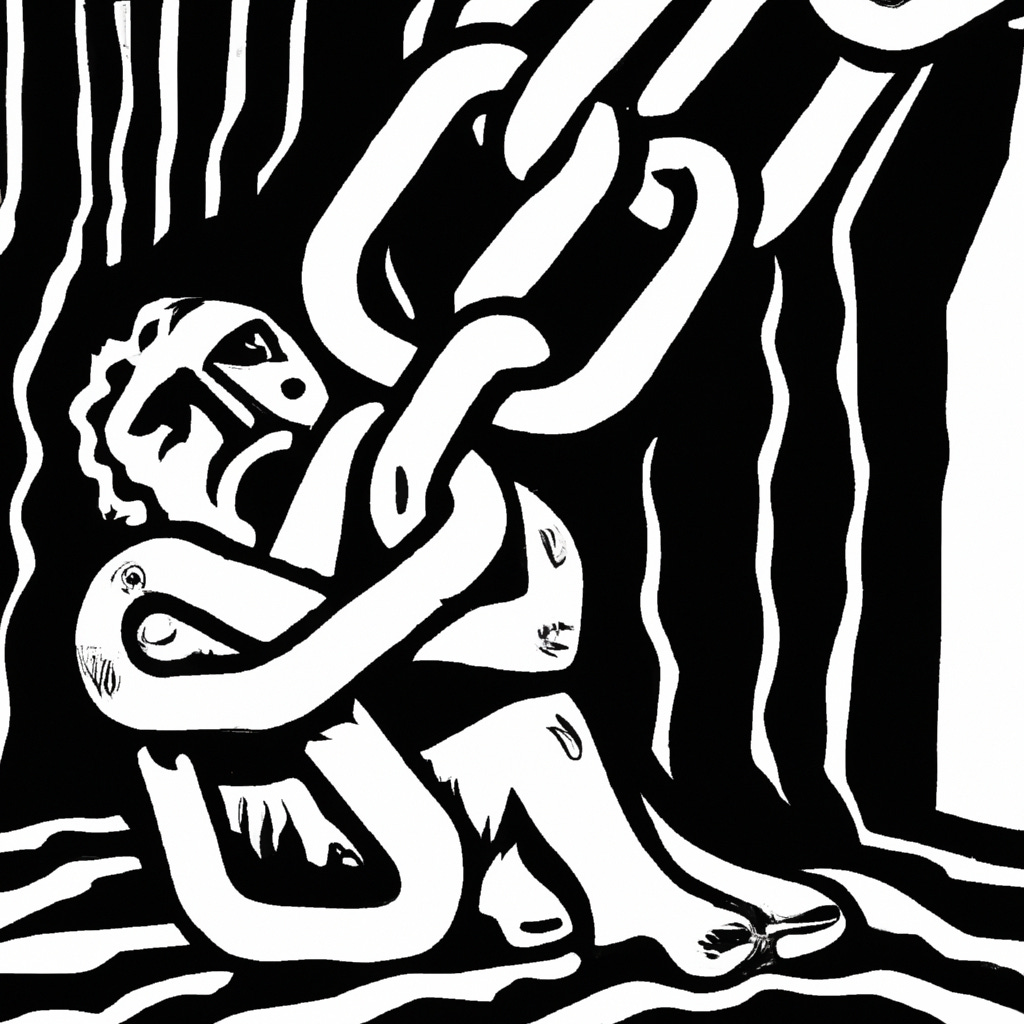Desire Trapped in the Vices
The aim of the vices is to siphon human freedom, to turn our own energy against us
This week I’m building on a previous post, Disagreeing Desires. There, I said our desires were inherently good but trapped. Here, I dig a little deeper and explore what “trapped” means, unveiling the chief cause that necessitates the Purgative way. As always, I’d value your feedback — what resonated? any resistance?
Atop one of the white chalky Cliffs of Dover sits a small tree with a curious shape.
Its branches do not grow up, but out — not skyward, but sideways. The branches sprawl in the opposite direction of the sea because of the coastal winds that continually beat upon it. It’s strange to see a tree growing laterally instead of vertically — a kind of break with its nature.
I’m convinced that we all begin the Purgative way like that tree, malformed. By the time any of us become conscious of our need to train with Christ, each of our desires have already grown sideways, hardening into unnatural appetites, cravings, itches, compulsions.
The effect of this hardening is a loss of freedom. The more we lose, the more difficult it becomes to do the things are hearts really want. And this, for me, has been the hardest thing about navigating the Purgative way. I want to give myself to Christ in a way that’s total and comprehensive, and yet there are so many pieces inside of me that won’t. All of this breeds a confusing tension, torn between the call of Christ and the pull of something so much less.
Ancient Christians first called this pull: passions, which came from the Greek word pathos, which meant to be acted upon — like the wind acts upon the tree. Today, we use the word “passion” positively, to express an intense emotion or feeling we have towards something we enjoy or care about.
Instead of using passions to describe our cravings, itches, or compulsions, I’ll use a sister term from the tradition: vices, which evolved as another way of naming our sideways desires.
If something is in a vice, it means it’s gripped, caught, or trapped. Which is exactly the way my desire For Food and Drink so often feels, it’s trapped.
Vices are disordered desires stuck in a habitual state.
The aim of the vices is to siphon human freedom. We encounter them in ourselves, and within others, everyday as the common forms of egotism. Ultimately, they are what sin looks like settled in our character — ingrained ways of feeling, thinking, speaking, or acting that are unloving to ourselves, others, and God.
There are seven Capital Vices from which all others stem: Sloth, Lust, Gluttony, Envy, Wrath, Greed, and Vainglory.
I know old words, like the ones above, run the risk of turning you off, but I use them because they carry a weight that can't easily be replicated. Old words are like portals. They connect me to the saints, those who’ve already traveled the transformative path and have wisdom in their words.
Each vice functions like a miniature dictator: fighting for priority, vying for our human energy, eroding our freedom, splintering our humanity, and ultimately diminishing our unity with God, ourselves, and others.
That is why the Purgative way feels so much like a conflict or war.
Because I so often encountered my desires negatively, in the shape of my vices, I simply wanted to eliminate them.
I failed to grasp the gift that desire is.
But it’s as I began naming my desires, understanding the dynamics within me, that I not only began to see their inherent goodness, but also a greater goodness they point to.
Which I think is what the author of Genesis means when he says that God created human beings good. That is, we’re not only inherently good, but we have the capacity to develop into an even greater good.
Like a seed is inherently good, and yet its inner existence points to a greater good, a tree. Or a caterpillar is intrinsically good, and yet its inner being points to a greater good, a butterfly.
A desire works the same way.
It’s inherently good, and yet it points to a greater good.
What is that greater good?
That’s what we’ll explore in the coming weeks.





Yes! This makes so much sense. I’m appreciative of the way you’re able to communicate timeless truths in a relevant, approachable way.
The image of the tree growing at The Cliffs of Dover will stick with me … it resonates deeply.
Thanks Johnathan! You do have a way with words expressing deep thoughts about our inner workings of desires and vices. Like the wisdom of old saints, I am writing down some of your insights so I can chew on them as they resonate and will be helpful in my workings for inner transformation